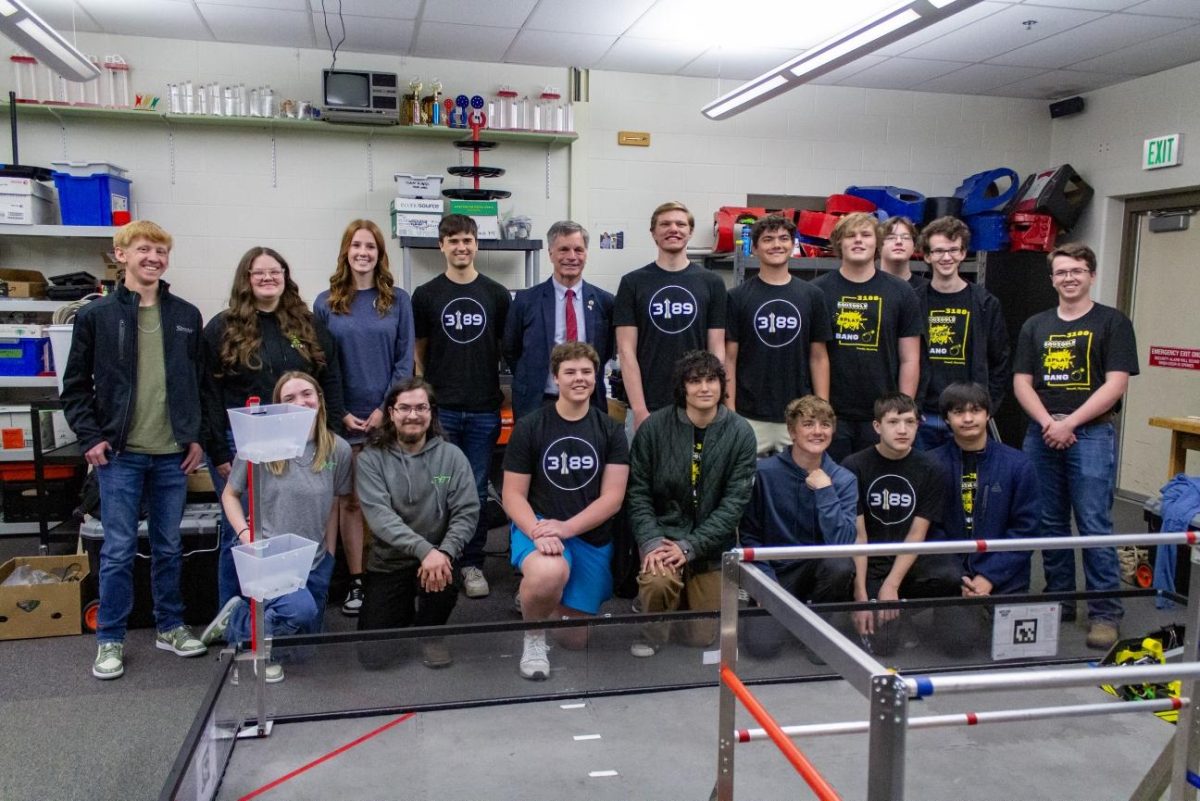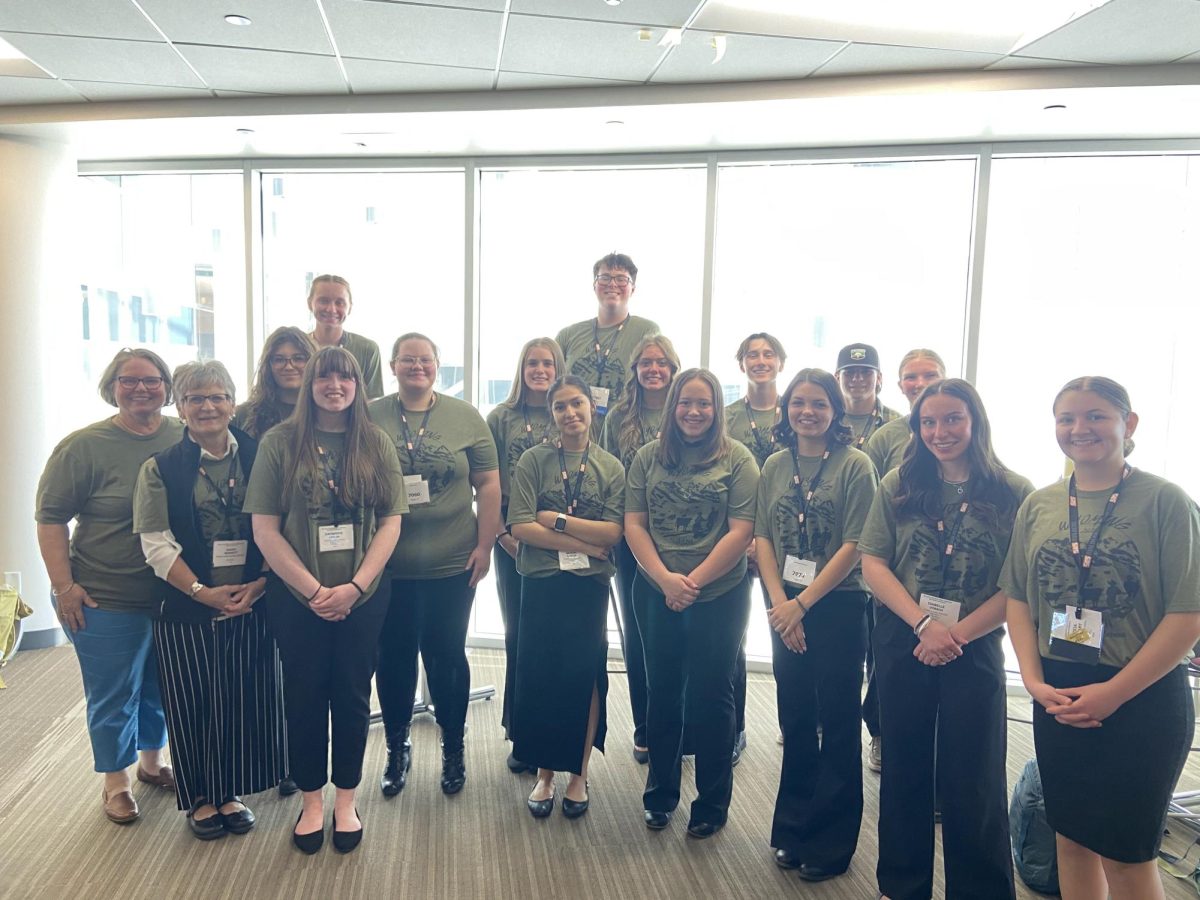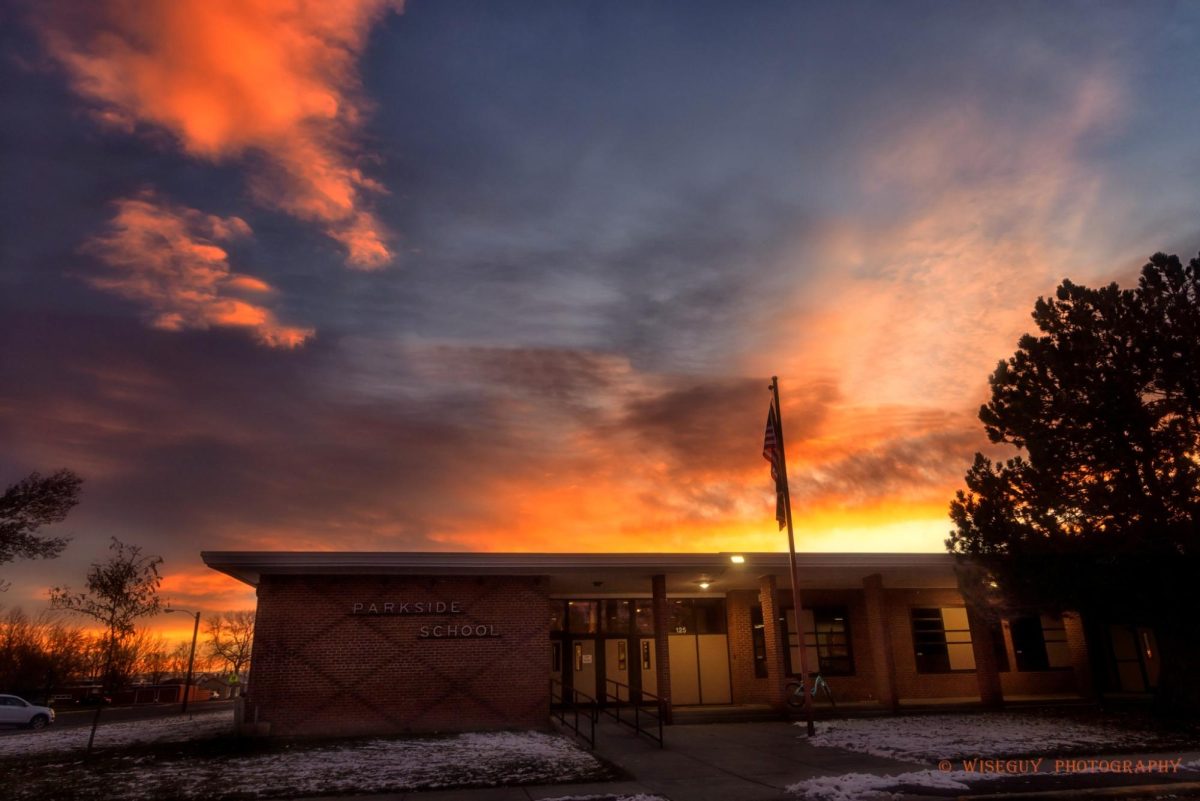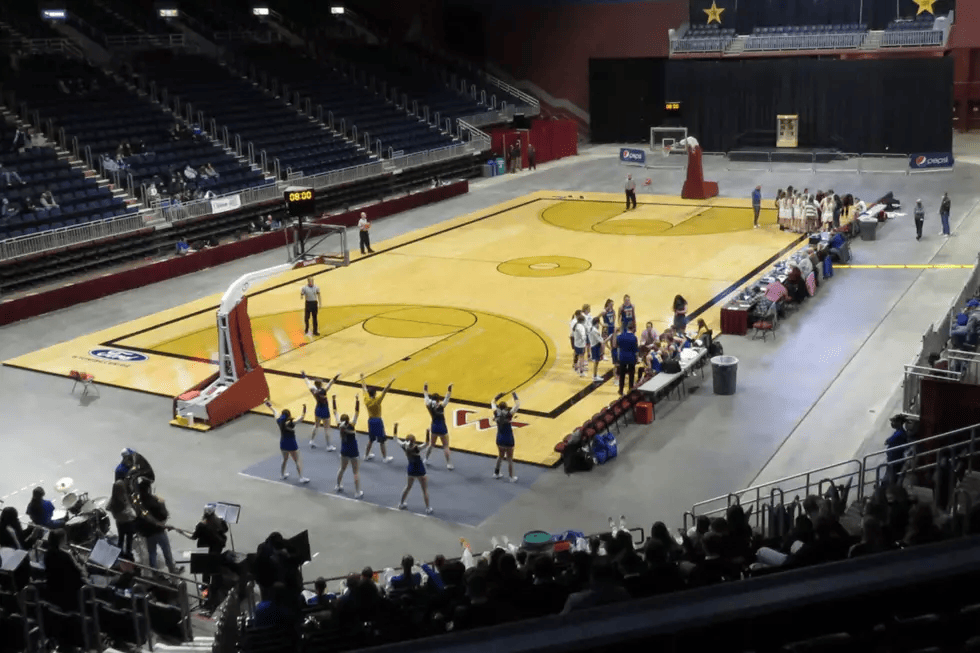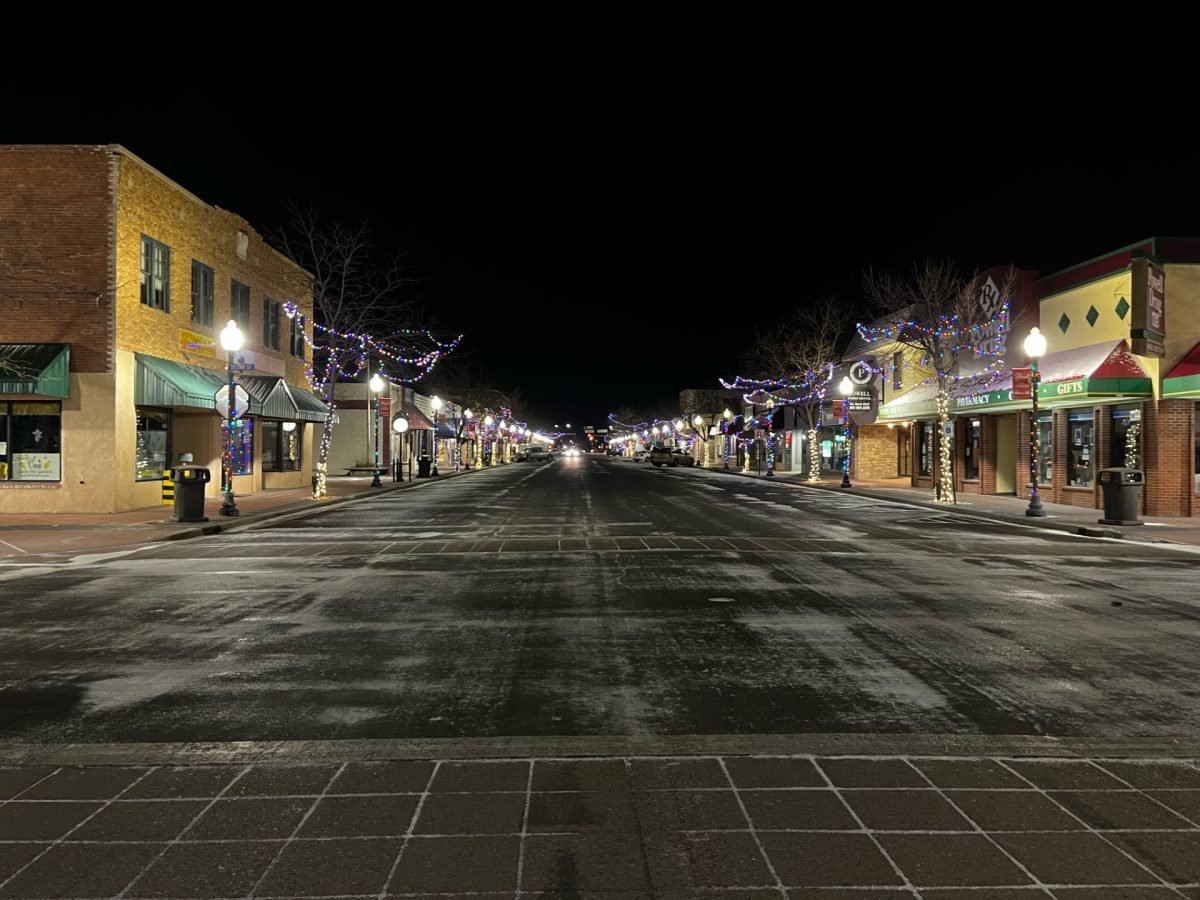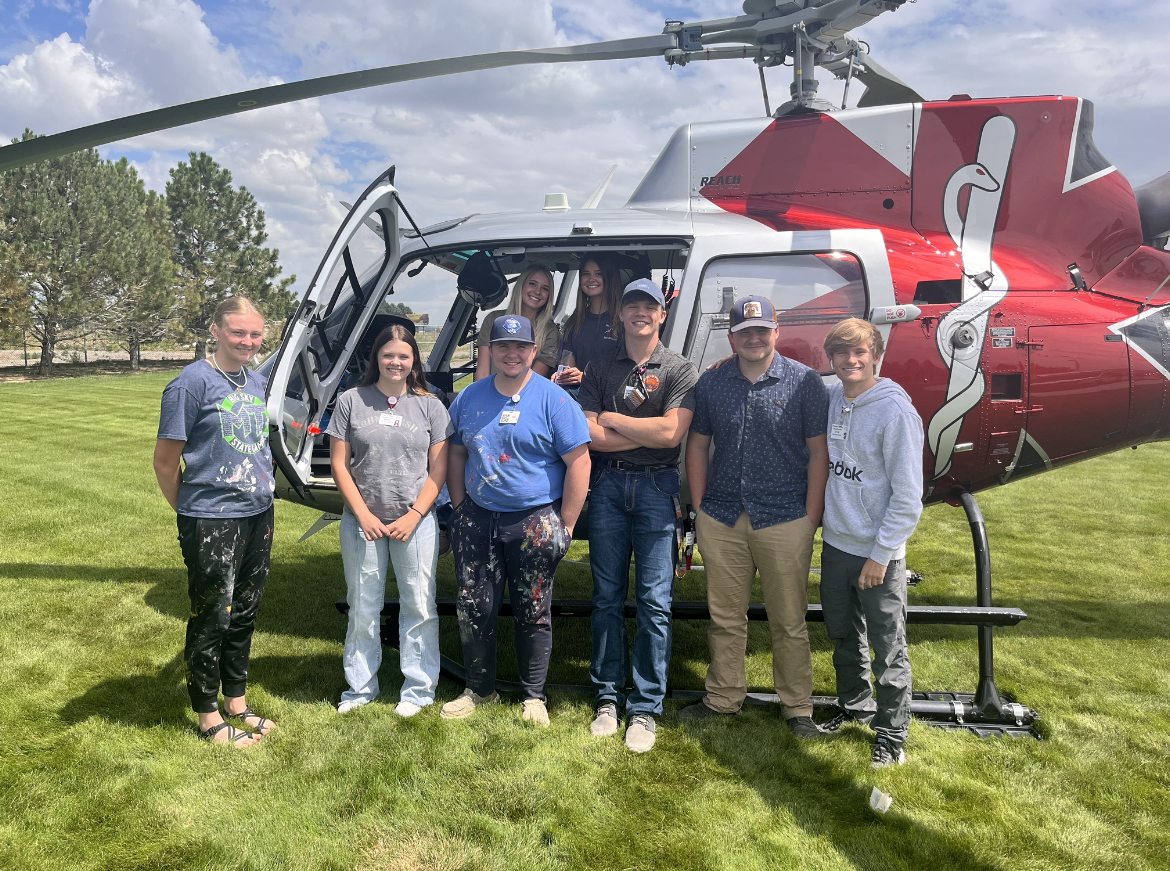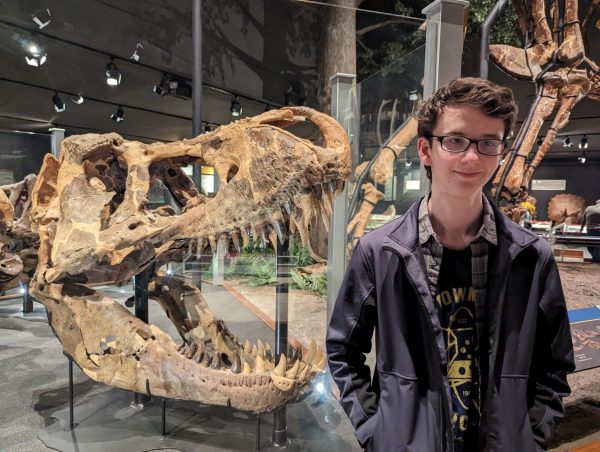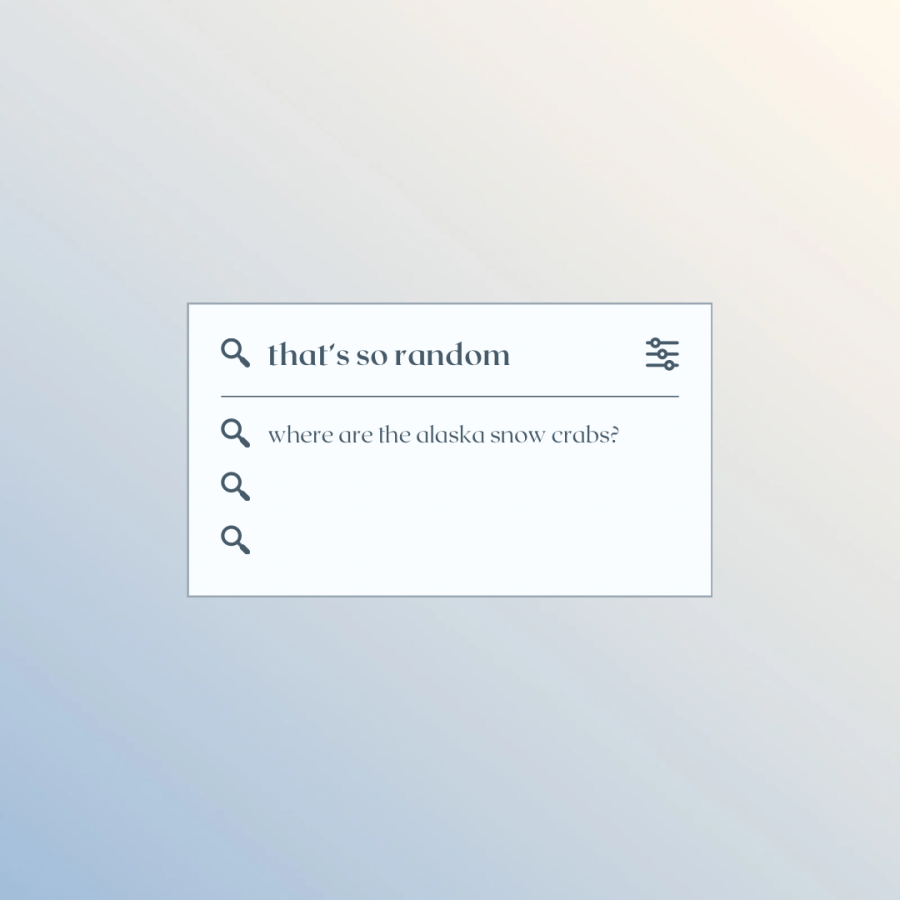THAT’S SO RANDOM: WHERE ARE THE CRABS?
The “Crabtivating” Story of the Missing 11-Billion Alaska Snow Crabs
Photo Graphic Courtesy of Emma Johnson
Over eleven billion Alaska Snow Crabs have gone missing, causing a lot of people to wonder what is going on.
Ever since October of 2022, the Bering Sea (located between Russia and Alaska) has seen over 11 billion of its Alaska Snow Crabs go missing. An annual tradition in Alaska has been fishing for snow crabs, which started in the 1950s. With the recent disappearance of the ten-legged crabs, the decades-old event had to be canceled for the first time in history.
“We call it overfishing because of the size level,” said an article by CNN. “But it wasn’t overfishing that caused the collapse, that much is clear.”
Many scientists believe that the claim of overfishing is not to blame for the recent crustacean disappearances, but rather a form of global warming.
“[Alaskan officials] posted that the warming waters of the Bering Sea forced the cold-loving crustaceans into increasingly small pockets of frigid water,” said an article for Time Magazine, “leaving them more susceptible to hunger, disease, and predation.
Global warming has been defined as the long-term heating of the Earth’s surface which has caused glaciers in the poles to melt rapidly. Global warming has also caused animals to move habitats in order to escape the ever-rising temperatures on Earth.
“So as climate changes, the areas where [Alaska Snow Crabs] live are becoming warmer; [scientists] can actually measure that,” PHS biology teacher Mrs. Lenita Moore said. “And probably what’s happening is a lot of them are starving because they live in really cool waters and have a slow metabolism. So just like with all species on the earth, they’re adapted to live where they live and so they’ll either have to adapt or risk becoming extinct.”
Even students at Powell High School, located roughly 2,859.9 miles away from the Canadian-Alaskan border, are becoming concerned about the loveable Alaska Snow Crabs and their disappearance from their usual waters.
“This proves my opinion on the city of Atlantis, I mean Bermuda,” sophomore Kenan Lind said. “Where are [the crabs]? I miss them.”
Some students have also commented on efforts that should be put into place to locate the lost crustaceans.
While the eleven billion missing crabs do not likely open a gateway into the mystery of Atlantis, nor does the Bermuda Triangle play a role, as one PHS student suggested, it does act as a warning to many people to be cautious toward global warming. With the changing climate of Earth, it is fair to say that the Alaskan Snow Crabs may have just been one of the first creatures to see a mass die-off in this ongoing battle against our warming temperatures.









